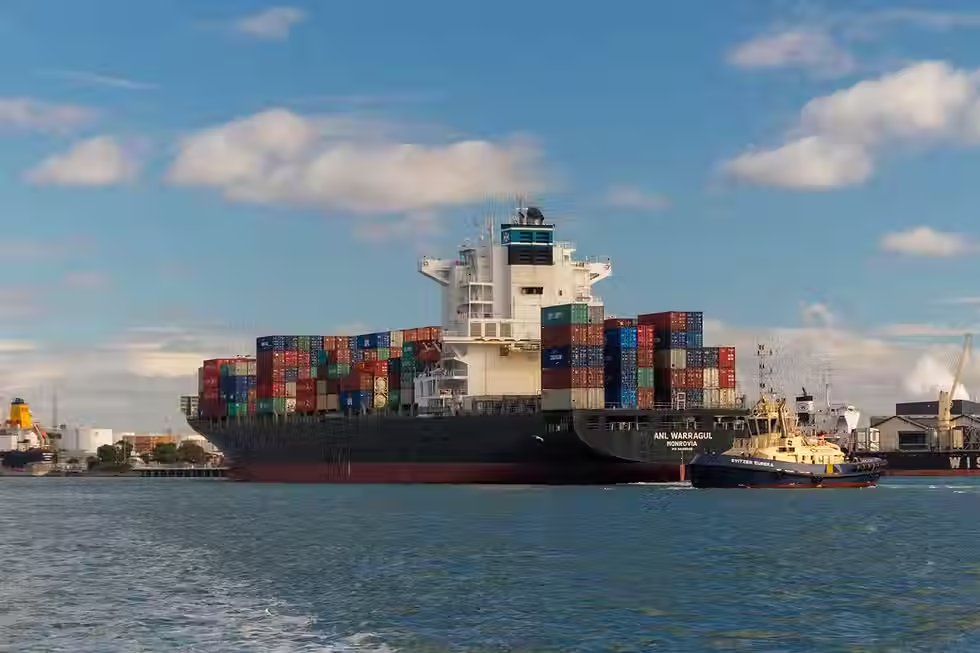Freight Forwarding Made Easy: How a Customs Broker Ensures Compliance & Efficiency
- declarationnexus
- Mar 5, 2025
- 3 min read
Updated: May 6, 2025

Global trade depends on freight forwarding to move goods across borders. Many businesses struggle with the complex rules of international shipping. Customs brokers help solve these problems. They know all the rules and paperwork needed for smooth shipments.
Freight forwarders face many challenges with customs compliance.
This comes with changing regulations, specific expectations per country, and a rigid timetable. An efficient customs broker works with forwarders to ensure that these issues are taken care of.
This partnership leads to better deliveries, fewer holdups, and happier customers. Now, let’s look at how this partnership benefits everyone.
Understanding Freight Forwarding and the Role of a Customs Broker
Freight forwarding connects businesses with carriers that handle the transportation of goods internationally. Forwarders are the middlemen who deal with shippers and various transportation companies.
They coordinate movement by air, sea, rail, or truck depending on the money available and time expected. Each mode has its own rules and paperwork. Customs brokers focus on the border crossing part of this journey.
They handle declarations, classify goods correctly, and calculate duties.
They know import/export rules for different countries. Brokers speak the language of customs officials. This expertise helps goods move across borders without expensive delays. Together, forwarders and brokers create a complete shipping solution.
Why Compliance Matters in Freight Forwarding
Compliance with customs rules and regulations is not optional, as it impacts shipping efficiency. There are delays, penalties, and even items getting confiscated if they are not followed. Every shipment has specific. Customs authorities require accurate classification codes and declared values.
Getting these wrong means trouble.
Different countries have different rules about restricted items, labelling, and documentation. The British International Freight Association sets standards for UK operations. Authorised Economic Operators get faster clearance through trusted trader programmes.
Staying up-to-date with changing Incoterms (shipping terms) also matters. Customs brokers prevent costly mistakes by knowing these details inside out. Singapore, with its strategic position as a global trade hub, has particularly stringent regulations through Singapore Customs and maintains a Tradenet system for electronic declarations.
How a Customs Broker Enhances Freight Forwarding Efficiency
Customs brokers coordinate shipments with precision and expertise. They speak directly with carriers about customs requirements before goods even move. This prevents surprises at borders. Brokers submit documentation electronically through systems like electronic data interchange.
This speeds up clearance times dramatically. They track shipments carefully and jump in to solve problems quickly. As a result, you avoid delays, costly fines, and problems that might have an impact on your operations.
Choosing the Best Freight Forwarding Solution
The best freight forwarding combines reliability, speed, and cost-effectiveness. When evaluating options, look at their customs expertise first. Do they have in-house brokers or strong partnerships? Check their technology systems for tracking and documentation. Good cargo insurance protects your shipments from unexpected problems. Strong logistics management helps optimise routes and reduce costs.
Consolidation services combine smaller shipments to save money. Major players like United Parcel Service offer integrated solutions. Even the modern postal system has improved international shipping options. Ask potential partners about their experience with your specific goods and destination countries. The right match creates a seamless shipping experience from pickup to delivery.
Common Challenges in International Freight and How Brokers Help

Customs holdups cause major headaches in shipping. Payment of import duties often creates confusion about amounts and timing. Every mode of shipping presents distinct challenges – air freight encounters stringent security, ocean freight deals with port congestion, and rail transportation is restricted by limited routes. Different countries have conflicting rules about the same products. Customs brokers navigate these complications daily.
They know which ports process certain goods faster. They arrange duty payments before shipments arrive. They recommend the best shipping modes for specific goods. They maintain relationships with customs officials to resolve issues quickly. These skills reduce transportation costs by preventing delays, storage fees, and penalties. A good broker turns potential problems into smooth solutions.
Conclusion: Why Freight Forwarders Should Partner with Customs Brokers
Smart freight forwarders understand that adherence to customs regulations is crucial for the success of their service. Collaborating with expert customs brokers forms a strong alliance. Brokers manage the intricate documentation, whereas forwarders concentrate on logistics. This teamwork builds an efficient, reliable shipping network. Customers get faster deliveries and fewer problems.
Declaration Nexus offers expert customs support for freight forwarders of all sizes. Our brokers stay current on regulations worldwide. We connect with your current systems for smooth operations. Reach out to us now to find out how our customs knowledge can improve your freight forwarding operations. Let's collaborate to ensure that international shipping is straightforward, reliable, and effortless for your customers.




